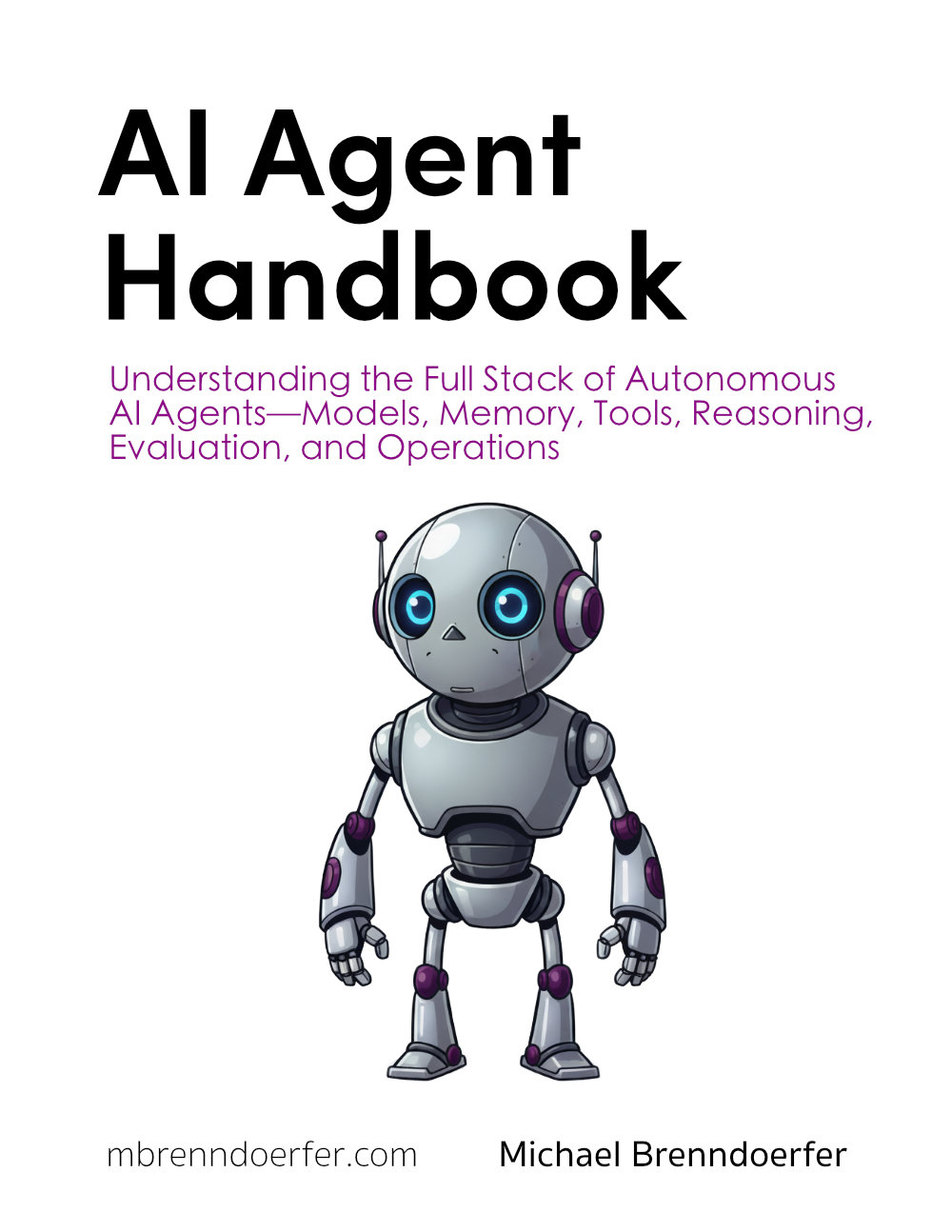Explore the trade-offs of multi-agent AI systems, from specialization and parallel processing to coordination challenges and complexity management. Learn when to use multiple agents versus a single agent.

This article is part of the free-to-read AI Agent Handbook
Benefits and Challenges of Multi-Agent Systems
You've seen how agents can work together and communicate. You've explored patterns like sequential handoffs, parallel execution, and consensus building. You've implemented communication protocols and message formats. But a crucial question remains: is all this complexity worth it? When should you use multiple agents instead of a single capable agent?
This chapter explores both sides of the multi-agent equation. We'll examine the real benefits that make multi-agent systems powerful, and we'll confront the challenges that come with coordinating multiple AI agents. By the end, you'll have a framework for deciding when to embrace the complexity of multiple agents and when to keep things simple.
The Case for Multiple Agents
Let's start with why you might choose a multi-agent architecture. We've touched on some benefits earlier, but now we'll dive deeper into each one with concrete examples.
Specialization: Experts vs. Generalists
Think about a hospital. You have general practitioners who handle common cases, but you also have cardiologists, neurologists, and oncologists who specialize in specific areas. When you have a heart problem, you want the cardiologist, not someone who knows a little about everything.
AI agents work the same way. A single agent can be a generalist, but specialized agents often perform better in their domains.
Here's a concrete example. Imagine you're building a customer service system. You could create one agent that handles everything:
This works, but notice the challenge. The system prompt tries to cover five different domains. The agent needs to handle technical details, understand billing systems, know product specifications, understand return policies, and manage account operations. That's a lot to ask from one prompt.
Now compare with specialized agents:
The difference is striking. Each specialist agent has a focused system prompt that makes it genuinely expert in its domain. The billing agent knows billing inside and out. The product agent deeply understands products. They don't try to be good at everything; they excel at their specialty.
This specialization brings several advantages:
Deeper Expertise: Each agent can have a more detailed, focused prompt. The technical agent's prompt could include specific troubleshooting procedures. The billing agent could have exact refund policies. There's no need to cram everything into one prompt.
Easier Updates: When your refund policy changes, you update only the billing agent. You don't risk breaking technical support or product recommendations.
Better Performance: Specialized agents often give better answers because they're not spreading their attention across multiple domains. They can reason more deeply about their specific area.
Clearer Debugging: When something goes wrong with billing responses, you know exactly where to look. You debug one agent, not a monolithic system.
Parallel Processing: Speed Through Concurrency
A single agent must work sequentially. It finishes one task before starting the next. Multiple agents can work simultaneously, completing complex requests faster.
Let's see this in action with a travel planning example:
The parallel approach finishes in roughly the time of the slowest agent, not the sum of all agents. If each agent takes about 3 seconds, the sequential approach takes 9 seconds total, while the parallel approach takes only 3 seconds. That's a 3x speedup.
This matters for user experience. When someone asks your assistant to plan a trip, they don't want to wait 9 seconds. They want an answer as quickly as possible. Parallel agents deliver that speed.
Robustness: Redundancy and Verification
Multiple agents can check each other's work, catching errors that a single agent might miss. This is like having an editor review a writer's work, or a second doctor confirm a diagnosis.
Here's a practical example:
This three-agent system is more reliable than a single agent because:
Error Detection: The verification agent can catch mistakes the research agent made. If the research agent misunderstands something or makes an unsupported claim, the verification agent flags it.
Confidence Calibration: The verification step provides a second opinion on how confident we should be in the findings. This helps users understand when information is solid versus when it's uncertain.
Completeness Checking: The verification agent can identify gaps in the research, prompting more thorough investigation.
Final Quality Control: The synthesis agent combines only the verified information, filtering out questionable claims.
This pattern is especially valuable for high-stakes decisions. If you're building a medical information system, legal research tool, or financial advisor, having agents verify each other's work significantly reduces the risk of errors.
Modularity: Build Once, Reuse Everywhere
When agents are specialized and independent, you can reuse them across different applications. The billing agent you built for customer service might also be useful in your accounting system. The research agent might serve both your personal assistant and your content creation tool.
This modularity saves development time and ensures consistency. When you improve the billing agent, all systems using it get better automatically.
The Challenges of Multi-Agent Systems
Now let's confront the difficulties. Multi-agent systems bring real challenges that you need to understand and plan for.
Coordination Overhead: Keeping Everyone Aligned
The more agents you have, the more coordination you need. Agents must stay synchronized, share information correctly, and avoid conflicts.
Consider a simple example: three agents working on a report.
This example shows a fundamental challenge: agents must execute in the right order. The writing agent needs the outline. The editing agent needs the sections. Without proper coordination, agents fail or produce garbage.
Coordination requires:
Dependency Management: Understanding which agents depend on others and enforcing execution order.
State Synchronization: Ensuring all agents see consistent shared state. If Agent A updates a value, Agent B must see that update.
Deadlock Prevention: Making sure agents don't get stuck waiting for each other in a cycle. (Agent A waits for Agent B, which waits for Agent C, which waits for Agent A.)
Resource Contention: Handling cases where multiple agents need the same resource (like a database connection or API quota).
All of this adds complexity. Your code needs to manage these dependencies explicitly, whereas a single agent naturally does things in order.
Increased Complexity: More Moving Parts
More agents means more code, more potential failure points, and harder debugging.
With a single agent, debugging is straightforward. You look at the input, the prompt, and the output. With ten agents passing messages, you need to trace the entire flow to understand what went wrong.
Let's look at a debugging scenario:
The multi-agent system has more steps where things can go wrong. Each agent is a potential failure point.
This complexity affects:
Development Time: Writing and testing five agents takes longer than writing one.
Maintenance: When requirements change, you might need to update multiple agents and their interactions.
Cognitive Load: Understanding a multi-agent system requires keeping track of multiple components and their relationships.
Operational Costs: Running multiple agent calls costs more in API fees than running one.
Communication Failures: When Agents Misunderstand
We discussed communication protocols in the previous chapter, but even with good protocols, agents can misunderstand each other.
Common communication issues include:
Format Mismatches: Agent A sends free-form text, Agent B expects JSON.
Missing Context: Agent B doesn't have information from earlier in the conversation that Agent A assumes it knows.
Ambiguous Messages: Agent A sends "high priority," but Agent B doesn't know if that means "urgent" or just "important."
Version Incompatibility: Agent A uses an updated message format, but Agent B still expects the old format.
These issues require careful protocol design, schema validation, and robust error handling.
Testing and Validation Difficulties
Testing a single agent is relatively simple: provide inputs, check outputs. Testing a multi-agent system requires testing individual agents, their interactions, and emergent behaviors.
You need to test:
Individual Agent Behavior: Does each agent work correctly in isolation?
Integration: Do agents communicate correctly?
Edge Cases: What happens when an agent fails? When messages arrive out of order?
End-to-End Workflows: Does the entire system produce correct results?
Performance Under Load: What happens when many users make requests simultaneously?
Each layer of testing adds work. A system with five agents might require 5 individual agent tests, 10 integration tests (for each pair of communicating agents), and multiple end-to-end scenarios.
When Multi-Agent Systems Make Sense
Given these challenges, when should you embrace multi-agent complexity?
Use multiple agents when:
1. Specialization Provides Clear Value
If different parts of your task truly benefit from specialized expertise, the complexity is worth it. A customer service system with technical, billing, and product specialists makes sense because each domain is genuinely different.
2. Parallel Execution Matters
If speed is crucial and tasks are independent, parallel agents deliver real user experience improvements. Travel planning with simultaneous flight, hotel, and activity research is a good example.
3. Verification is Critical
For high-stakes domains (medical information, financial advice, legal research), having agents verify each other's work is worth the overhead. The cost of an error outweighs the cost of redundancy.
4. System Will Grow and Evolve
If you're building a platform that will add new capabilities over time, modular agents make evolution easier. You can add a new specialist without rewriting everything.
5. Different Agents Need Different Tools
If your system needs to use many different APIs, databases, or tools, specialized agents that each master their specific tools make sense.
Stick with a single agent when:
1. The Task is Straightforward
If the task doesn't benefit from specialization, keep it simple. A single agent that answers basic questions doesn't need to be split up.
2. Speed Isn't Critical
If users are happy waiting a few extra seconds, sequential processing with one agent is simpler than parallel agents.
3. Coordination Would Be Complex
If agents would need extensive back-and-forth communication, the coordination overhead might outweigh any benefits. Sometimes one agent reasoning through the entire problem is cleaner.
4. You Need Simplicity
For prototypes, MVPs, or learning projects, start with one agent. Add more only when you hit clear limitations.
5. Context Needs to Be Preserved
If maintaining conversation context is crucial and sharing it between agents would be difficult, a single agent that keeps all context is simpler.
Practical Design Principles
If you decide to build a multi-agent system, these principles help manage the complexity:
Start Simple, Add Agents Incrementally
Begin with a single agent. When you hit a clear limitation (one domain needs deep expertise, or speed becomes an issue), split off one specialized agent. Then iterate. Don't start with ten agents; grow into that complexity.
Design Clear Interfaces
Each agent should have a well-defined interface: what inputs it accepts, what outputs it produces, what side effects it might have. Document these interfaces clearly. Good interfaces make agents easier to test, debug, and replace.
Minimize Dependencies
The fewer dependencies between agents, the simpler your system. When possible, make agents independent. Prefer message passing over shared state. Avoid circular dependencies.
Invest in Observability
With multiple agents, logging and monitoring become essential. You need to trace messages through the system, measure performance of each agent, and identify bottlenecks. Build this instrumentation from the start.
Plan for Failures
Every agent can fail. Your system should handle failures gracefully. If the weather agent times out, the system should still give the user whatever information it can rather than failing entirely.
Use Standard Protocols
When possible, use established protocols like the A2A Protocol we discussed earlier. Standards make your agents interoperable and easier to understand.
A Balanced Example
Let's bring this together with an example that shows both the benefits and the complexity management:
This example demonstrates the key principles:
Clear Interfaces: Each agent has a defined input/output contract.
Error Handling: Every agent can fail gracefully and return errors.
Observability: Comprehensive logging lets you trace execution.
Coordinator Pattern: One agent manages the workflow.
Structured Communication: All agents use JSON for predictable parsing.
The system is more complex than a single agent, but the complexity is managed. You can test each agent independently. You can trace failures through the logs. You can add new agents without rewriting everything.
Looking Ahead
You now understand both the power and the pitfalls of multi-agent systems. Specialization, parallelism, and robustness are genuine benefits. Coordination overhead, increased complexity, and communication challenges are real costs. The key is making informed decisions about when the benefits outweigh the costs.
This completes our exploration of multi-agent systems. You've learned how agents can work together, how they communicate, and when to use multiple agents versus a single agent. These patterns will serve you as you build more sophisticated AI systems.
In the next chapter, we'll shift our focus to evaluation. How do you know if your agent (or agents) is actually doing a good job? You'll learn systematic approaches for measuring performance, gathering feedback, and continuously improving your AI systems.
Glossary
Coordination Overhead: The additional complexity and effort required to synchronize multiple agents, manage dependencies, and ensure they work together correctly without conflicts.
Deadlock: A situation where agents are stuck waiting for each other in a cycle, preventing any progress. For example, Agent A waits for Agent B, which waits for Agent C, which waits for Agent A.
Dependency Management: The practice of identifying which agents depend on outputs from other agents and ensuring they execute in the correct order to satisfy these dependencies.
Format Mismatch: A communication error where one agent sends data in a format (like plain text) that another agent cannot parse because it expects a different format (like JSON).
Graceful Degradation: The ability of a system to continue functioning, possibly with reduced capabilities, when one or more agents fail, rather than failing completely.
Modularity: The property of a system where components (agents) are independent and reusable, with clear interfaces that allow them to be combined in different ways.
Parallel Processing: The execution of multiple independent tasks simultaneously by different agents, resulting in faster overall completion than sequential execution.
Redundancy: Having multiple agents perform the same or similar tasks to provide verification, error checking, or backup capability, improving overall system reliability.
Shared State: Data or information that multiple agents need to access or modify, requiring synchronization mechanisms to prevent conflicts and ensure consistency.
Specialization: The practice of designing agents with focused expertise in specific domains or tasks, allowing each agent to perform better in its area than a generalist agent could.
Quiz
Ready to test your understanding? Take this quick quiz to reinforce what you've learned about the benefits and challenges of multi-agent systems.



Comments